Stem Cell Therapy for Autism in India: How to Boost the Treatment Outcome
As a parent of an autistic child, your dream is to see your child communicate confidently, socialize, and live independently.
Concerns about sending them to a normal school, hyperactivity, and lack of social skills may give you sleepless nights. Stem cell therapy for autism in India, combined with personalized care and a doctor-guided holistic approach, can help your child become independent and acquire social and communication skills, along with improvement in behavioral issues.
Let’s learn how regenerative medicine and stem cell therapy, combined with holistic care, work for autism.
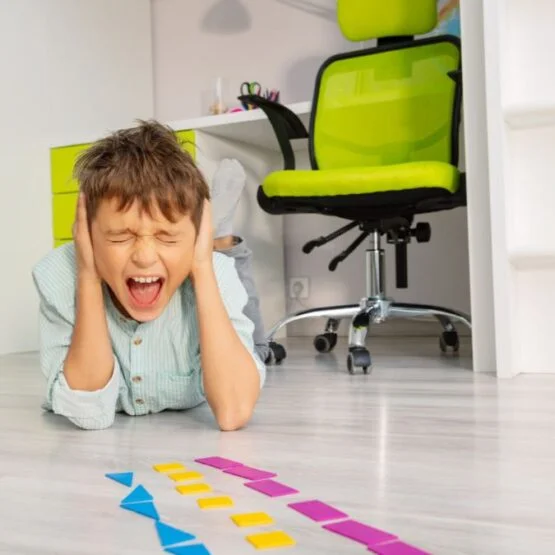
What is Autism Spectrum Disorder (ASD)?
Autism Spectrum Disorder (ASD) is a term used for a group of disorders that hamper your child from communicating, socializing, and learning.
ASD can be diagnosed at any age, but if your child has it, you will be able to see the symptoms from the age of 2. That is why it is also called a developmental disorder, too.
You need to remember that the abilities and needs of autistic children vary. Some may need little to minimal support, but some others may need lifelong support.
Autism can also hamper the education and job opportunities of your child if it is not treated at an early stage.
Let’s learn about different types of ASD to understand it better.
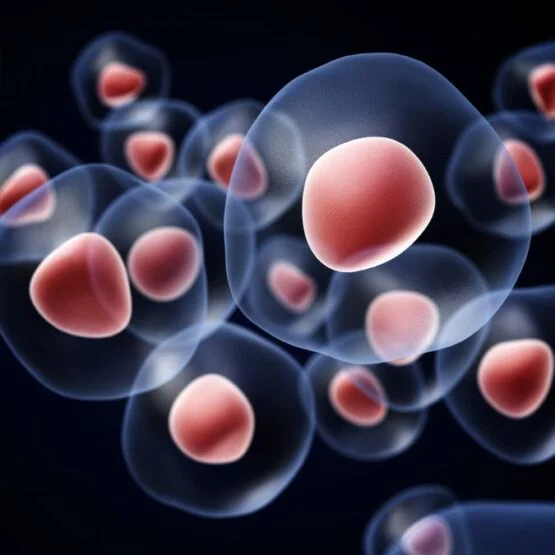
Different Types of ASD
Previously, experts used terms like autistic disorder, Asperger’s syndrome, and pervasive developmental disorder not otherwise specified (PDD-NOS). But now, all of these are called Autism Spectrum Disorder.
Children with Rett Syndrome have similarities with autistic children, and experts used to group them into ASD. However, in 2023, the experts have found that genetic mutation is the cause of Rett syndrome, which is why it is no longer considered an ASD.
Let’s have a look at all of them:
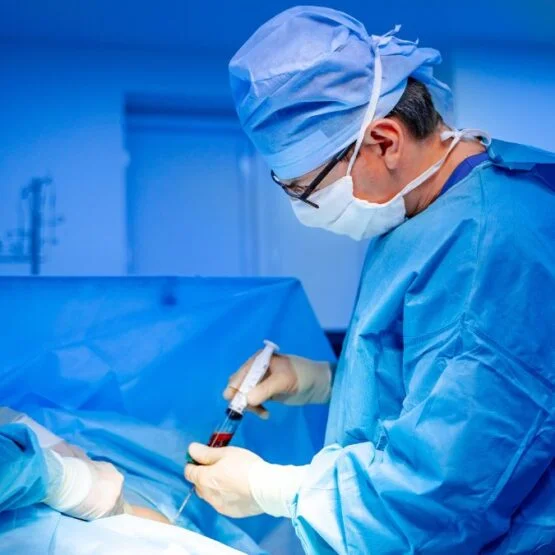
Asparagus Syndrome
Your child is on the milder end of the autism spectrum disorder if they have Asperger’s syndrome. The child may be very intelligent and self-reliant while handling their daily life.
They may be interested in a particular topic or object and talk about that without stopping, and may not understand whether you are interested in the topic or not. The child may find it hard to acquire social skills.
Pervasive developmental disorder, not otherwise specified (PDD-NOS)
The symptoms of PDD-NOS are more severe than those of Asperger’s syndrome. If your child has this disorder, they will have difficulties in social interactions and verbal and non-verbal communication and may show repetitive behavior and restricted interests.
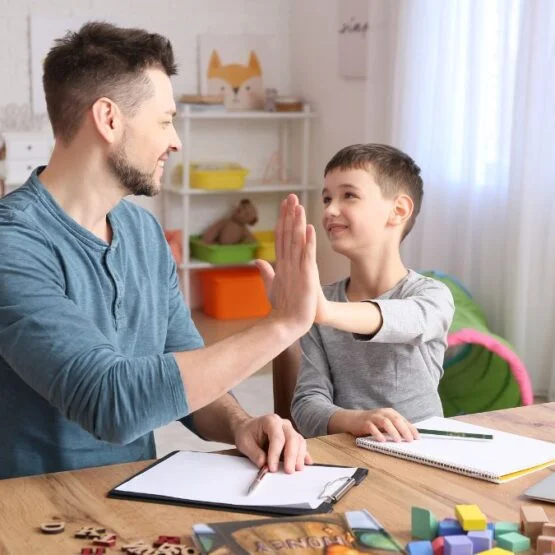
Classic Autistic Disorder
Classic autistic disorder is also known as Kanner syndrome. Children with autistic disorder may be smart, clever, and attentive.
However, these kids may have difficulty forming emotional attachments with people. They may also have uncontrollable speech, difficulty in communication, and a lack of social skills. The child may have an obsession with handling things and a high level of memory, but may have difficulties in other areas of learning.
Childhood Disintegrative Disorder (CDD)
It is the severest and rarest of the disorders in the spectrum. It has some common symptoms, like a regression of developmental and communication skills.
Apart from that, children with CDD have a lack of motor skills, bladder and bowel control, social skills and self-care, and expressive and receptive language skills (receptive language skill means how your child understands language, and expressive language skills mean how your child uses words to express their thoughts and emotions).
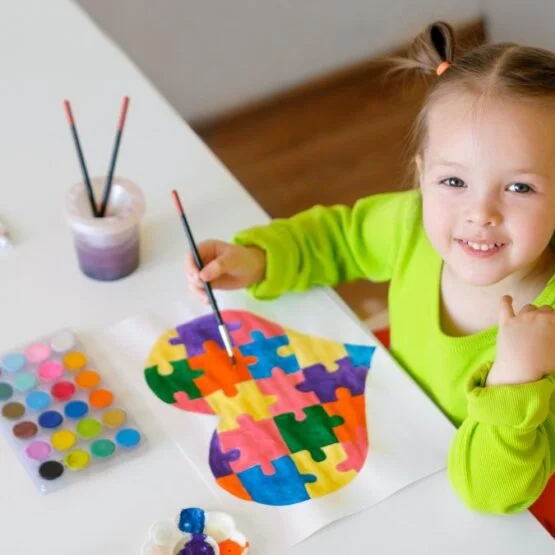
What are the Different Signs & Symptoms of ASD?
Your child’s ASD symptoms can be divided into 2 main categories of symptoms. One category shows the challenges, and the other category shows their strength. The doctors diagnose ASD by assessing these challenges and strengths and evaluating the differences in symptoms they have.
The early signs of autism may include:
- No eye contact or inconsistent eye contact.
- Struggle to engage in a conversation where people take turns speaking and responding.
- Issues with noticing or reacting when you try to interact with them.
- Talking nonstop without paying heed to whether others are interested or not.
- Sensory sensitivity or getting over-aroused by external stimuli like light and sounds.
- Struggle to understand others’ thoughts, viewpoints, and feelings.
- May not engage in drawing people’s attention to things they find interesting or enjoyable.
- A flat tone of voice.
- Easily gets upset by changes in routine.
- Repeat words, behaviour, or phrases.
- Too much interest in particular things.
- Problem with sleeping.
Along with these challenges, an autistic child may have some special qualities. Let’s check them:
- They may have an extraordinary memory for facts and figures
- They may have high levels of motivation and interest in activities they love
- They have a thorough knowledge of topics that they like
- They may use innovative ideas to solve problems
- They pay attention to details
- They may be very accurate in tasks
- When guided properly, they can follow the instructions accurately
- They may have exceptional creative skills
- May have the ability to think out of the box
- May have a unique sense of humour
- They tend to be honest, unbiased, and loyal in social relationships.
The doctors will diagnose using these challenges and the special qualities of your child.
How is Autism Spectrum Disorder Diagnosed?
The doctors can diagnose ASD in a child from the age of 2 years. As a parent or elder, you should carefully monitor whether your child has reached all developmental milestones, like walking without support, imitating elders, knowledge of shapes and colors, recognizing objects, and naming them.
When you see that the child has signs of a problem and is missing important milestones, you should immediately reach out to a doctor.
The diagnosis procedures for young children, older children, and adults are different.
The doctors will diagnose ASD in your young child in two ways:
Step 1: Screening for Developmental Delays
You should approach a doctor for screening of developmental delays if you see issues related to them at the age of 9, 18, 24, or 30 months.
They may need additional screening if their chances of having ASD are higher, as they have family members with ASD, show typical ASD behavior, or have certain genetic conditions.
Step 2: Additional Diagnostic Evaluation
Doctors with experience in diagnosing ASD will do the evaluation. The team of doctors will evaluate your child’s cognitive abilities, language abilities, neurological abilities, and behavior. They will then assess the child’s age-appropriate skills and how they complete them every day.
The evaluation may also include blood tests and hearing tests because ASD is a complex disorder that can occur along with other learning disorders or illnesses.
As a parent, you and your older child’s teachers are the ones who will recognize the symptoms of autism in your older child. Older children may have issues understanding humor, figures of speech, or sarcasm.
They may have issues understanding body language, facial expressions, and tone of voice. When you notice these social and communication difficulties in your child, you should approach a doctor.
If you have an autistic adult in your family, diagnosing becomes a bit more difficult than diagnosing it in children and adolescents.
Mostly because their ASD symptoms may overlap with other mental health disorders like anxiety disorder, hyperactivity disorder, or attention deficit disorder.
A doctor, while diagnosing them, will ask if they experience communication challenges, repetitive behavior, sensory issues, or restricted interests.
The specialist or the doctor will ask you and your other family members about the adult’s early developmental history. This diagnosis will help the autistic adult with their challenges and strengths, and get assistance from a doctor accordingly.
Now that you know the types of ASD and how to diagnose them, let’s check the advanced treatment for it.
How do Regenerative Medicines help treat Autism?
You need to remember that early detection and treatment of your child are important to increase the effectiveness of regenerative medicine. Mostly because diagnosing ASD as early as possible means your child will have a better chance at improvement in their cognitive, communication, and social skills.
Regenerative medicine focuses on repairing and replacing damaged cells, tissues, and organs to regain their normal function. It can help your body heal itself, or doctors may use it to grow tissues and organs in a lab for transplant.
Experts have found through MRI that some brain regions of an autistic child are different in size compared to a normal child.
Some children with autism have a larger hippocampus (an area in the brain related to memory). They may have changes in an area called the amygdala, which is related to human emotions. They also have fewer tissues in an area called the cerebellum, which influences the child’s movement and social interaction skills.
Regenerative treatment like stem cell therapy can restore the damaged cells and tissues and promote the formation of neurons in your child’s brain. Your brain will be able to recover from injury, adapt to new experiences, and learn new things with newly formed neurons.
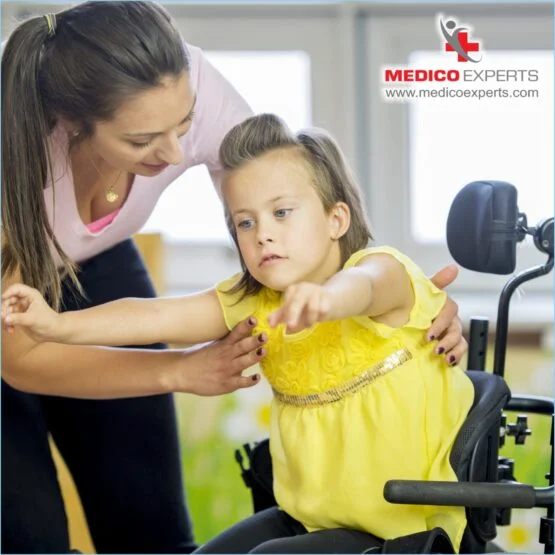
Stem Cell Therapy for Autism
Stem cell therapy uses your body’s regenerative power. These cells can transform into specialized cells and repair damaged tissues. Their primary role is to repair and regenerate damaged cells. This healing power makes them highly effective in the treatment of autism.
Stem cells have two functions:
- Paracrine Signaling: They release growth factors that help nearby cells heal and function better.
- Immunomodulation: They regulate and strengthen the immune system.
These actions improve brain function by repairing damaged neural tissues and improving learning, communication, immunity, and behavior. Doctors and experts use these qualities to help children with autism.
When combined with other holistic therapies, stem cell treatment can boost improvements in speech and social skills, focus, emotional well-being, and behavior.
If you are concerned about the safety and efficacy of stem cell therapy, you need to know that research indicates that stem cell therapy is safe and effective for your child.
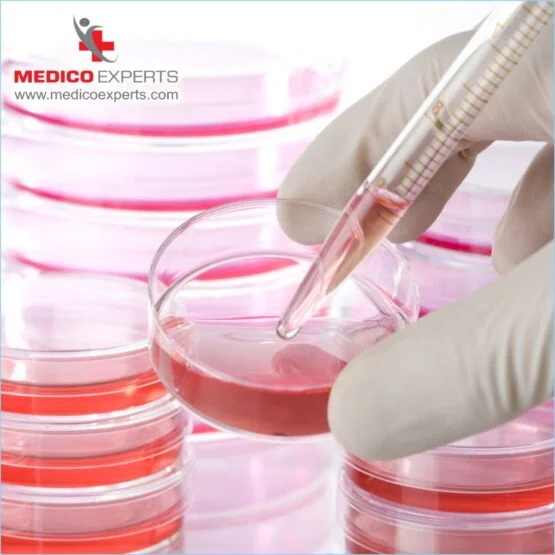
Stem Cell Therapy explained by Dr. Anant Bagul
Combination therapy to Improve Stem Cell Therapy Outcome
If you are planning to opt for stem cell therapy for your child, you should know that it works gradually.
You may notice a decrease in your child’s hyperactivity within 15 days of undergoing this therapy. You will see a significant improvement in your child in terms of better eye contact, development in speech and communication, and a boost in their capacity to understand their surroundings.
If your child is completely non-verbal and speech therapy hasn’t worked for them so far, you should know that stem cell therapy has shown some positive results in these cases.
Stem cell therapy has a success rate of 50 to 60 percent in mild to moderate cases of autism. The success rate for severe cases is 30 percent.
To improve the outcomes, MedicoExperts has come up with a doctor-guided combination therapy approach. The benefits of this therapy last 3 to 5 years, and you can maintain it thereafter.
When homeopathy is combined with stem cell therapy, you will see an improvement of 40 to 60%.
And when you combine stem cell therapy with Ayurveda, the quick results you will get from stem cell therapy will be the base for Ayurvedic treatment. In this case, Ayurveda will help your child sustain the improvement achieved through stem cell therapy. It will also help increase the improvement slowly but steadily.
Sometimes there is a decline in results over time in 5 to 10 percent of cases. If this kind of situation comes up, your child’s doctor may ask you to repeat the stem cell therapy cycles until your child achieves functional independence.
What is the Procedure of Stem Cell Therapy for Autism?
Here are some important points related to the stem cell therapy procedure that you need to know:
- In stem cell therapy, there is no surgery involved. It is a very simple method where the healthcare provider injects the stem cells into the patient.
- Now the stem cell can be procured from the patient’s blood or fat cells, or it can be umbilical cord mesenchymal cells (multipotent stem cells that are taken from bone marrow that are important for making and repairing skeletal tissues, such as cartilage, bone, and the fat found in bone marrow).
- Your child’s healthcare provider may suggest certain therapies to increase the effectiveness and potency of the stem cells.
- Your child’s doctor may advise you on certain supportive therapies for a better outcome. It can be homeopathy or Ayurveda.
- Ayurveda may be used to help improve digestion, calm the nervous system, and sustain improvements achieved by stem cell therapy.
- Homeopathy addresses behavioral and emotional symptoms naturally and boosts immunity.
- Behavioral and speech therapy may be used to boost improvements in social skills and communication.
- We review the progress of your child regularly and arrange follow-up consultations to ensure that the treatment plan adapts to your child’s response.
- In some cases, the doctors may advise additional cycles and therapy adjustments for long-term benefits.
Know what treatment combination is best for your child with autism today.
What are the outcomes you can expect?
Here are some of the outcomes you can expect after therapy:
- Decrease in aggressive behaviour
- Decrease in hyperactivity
- Improved eye contact
- Their attention span is increasing significantly
- Improvements in communication
- Social skills started developing
- Improved motor skills
- Normalization of reflexes
- Reduced sensory Integration problems
- Better tolerability of daily chores
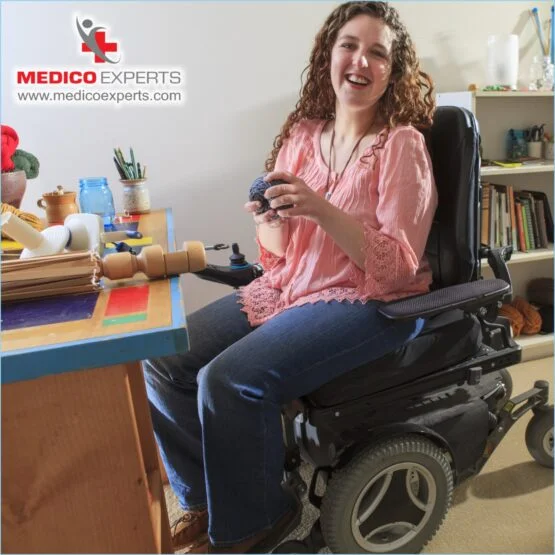
The Success Rate of Stem Cell Treatment for Autism in India
Around 80% of our patients have shown notable improvements in multiple ways. The patterns of behavior found in kids with autism, such as hyperactivity and participating in repetitive behavior, have considerably reduced.
Many parents also reported that their children’s concentration, social behavior, eye contact, ability to understand and follow instructions, and attention span are much better after stem cell treatment in India for autism at our best autism treatment center.
The results in mild and moderate cases are much better than those in severe cases of autism.

Check Some of Our Patients’ Testimonials
These outcomes are only possible when you have the right team of doctors and a combination of treatments with you.
What is the Cost of Stem Cell Therapy for Autism in India?
The cost of stem cell therapy for autism in India is approximately 400000 INR (4818 USD) to 1000000 INR (12046 USD).
Your cost may increase or decrease depending on the number of injections needed and the source of the stem cells.
Additionally, food, accommodation, travelling costs, and the city you are opting for the procedure in will impact the overall cost.
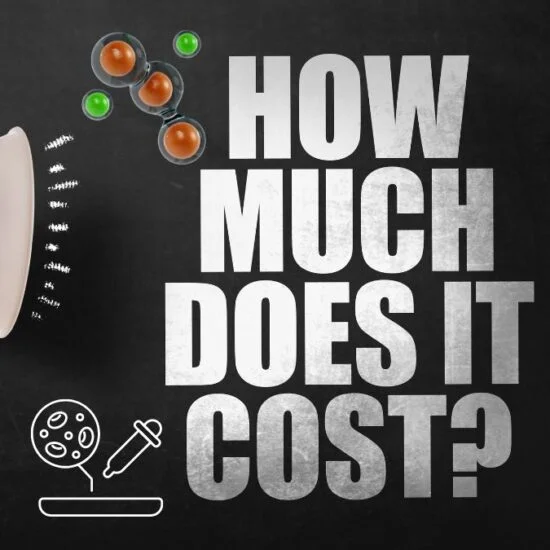
Takeaway
Stem cell therapy and our holistic combination therapy offer new hope for children with autism. It’s safe, doctor-guided, research-backed, and affordable compared to Western countries. To know about our combination therapy and stem cell treatment, contact us today.

Frequently Asked Questions (FAQs):
Q1. Does autism get better with age?
A. Many experts believe that autism is a condition that stays with you lifelong. But the symptoms of it can get better with your age.
If your child has autism and you treat it from early childhood the symptoms will get better and they will be able to live a self-reliant life without depending on others.
Q2. Can a child with autism lead a normal life?
Living a normal life with autism is possible. If your child gets the right treatment from the best specialist in early childhood, they can live a normal and independent life.
Q3. Where should I go for stem cell therapy for autism in Mumbai?
There are many centers and specialists in Mumbai offering system cell treatment but you need to check the success rate of the treatment and whether it is in your budget.
MedicoExperts can help you get the best stem cell therapy for autism. The best part is that we can connect you to the best team of specialists who will guide you throughout the treatment and offer you the best services with the highest success rate.
Q4. What are the side effects of stem cell therapy for autism?
Stem cell therapy is safe and effective for children. Some of the side effects they can have are low fever, pain in the lower back region, fatigue, nausea, and vomiting.
Q5. Is there any permanent treatment for autism?
Stem cell therapy for autism can give you permanent results that stay lifelong. You will be surprised to know that stem cell therapy has a success rate of 50 to 60% and once you achieve the improvements you can sustain them for the rest of your life.
Moreover, when you combine stem cell therapy with ABA therapy, Ayurveda, and Homeopathy, you can boost the success rate even further.
At the same time, you need to understand that you need a team of specialists with a proven track record to make this possible.
That is why you need to choose them carefully.
Q6. Can an autistic child speak normally?
Most autistic children have problems with communication and speech. Some of them need minimal support but some need more support.
You will see significant improvement if you take the help of stem cell therapy.
Q7. Does stem cell treatment cause tumour?
There is a myth that stem cells cause the growth of tumours. The myth is busted because our doctors are using multipotent stem cells, as these stem cells do not have any kind of tumour-generating marker.
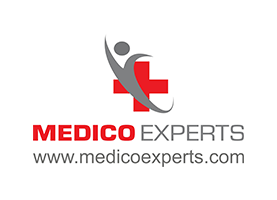
MedicoExperts is a Global virtual hospital which is established to offer quality healthcare services at affordable pricing without compromising the success rates of the treatment.
MedicoExperts is having a network of highly experienced super specialist doctors and well equipped hospitals across the globe and offering second opinion through online video consultation and surgical interventions through its empanelled super specialist doctors at its network hospitals in 17 countries from 3 continents.
By the virtue of its approach and model, MedicoExperts is successfully achieve to deliver
- Latest and most advanced treatments with success rates of international benchmarks.
- Multiple cost options depending upon the hospital facilities, with the same doctor.
- Treatment option in multiple cities/state/countries.
- Trust and peace of mind.
Most suitable for patients who are looking for:-
- Planned Surgeries and treatment from most experienced doctors and at multiple cost options as per hospital facilities with best possible outcomes.
- Second Opinion from expert doctors.
- Complex cases involving multi specialities
- International patients looking for treatment from Indian doctors
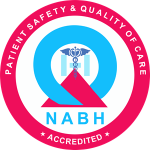
MedicoExperts is proud to be NABH-accredited (National Accreditation Board for Hospitals & Healthcare Providers), India’s highest recognition for patient safety and healthcare quality.
This accreditation reflects our commitment to delivering world-class standards of care, ensuring every patient receives safe, ethical, and effective treatment under the guidance of expert doctors.
Recommended Articles For You
- https://www.webmd.com/brain/autism/autism-spectrum-disorders
- https://www.ncbi.nlm.nih.gov/pmc/articles/PMC10217468/#:~:text=Pervasive%20developmental%20disorder%20not%20otherwise%20specified%20is%20one%20of%20the,skills%20and%20the%20presence%20of
- https://www.nimh.nih.gov/health/topics/autism-spectrum-disorders-asd
- https://www.ncbi.nlm.nih.gov/pmc/articles/PMC2833273/
- https://www.ncbi.nlm.nih.gov/pmc/articles/PMC7751844/
- https://www.ncbi.nlm.nih.gov/pmc/articles/PMC9114801/
- https://health.economictimes.indiatimes.com/news/industry/indias-clinical-research-advancements-trends-witnessed-across-technology-and-patient-centricity/89790819
Recommendations to understand different treatments
How does stem cell therapy work?
Curious about how our bodies have the incredible ability to repair and regenerate damaged tissue? Our bodies have stem cells that have the unique ability to develop into various types of…..Read More
Medically Reviewed By MedicoExperts Editorial & Clinically Review Board

Author Bio:
Dr. Khushbu Jain is a dedicated professional with a passion for advancing healthcare through cutting-edge treatments. She has a special interest in researching regenerative medicine and advanced treatment for diseases that are difficult to treat with conventional treatment options. Her deep understanding of these progressive treatments allows her to offer patients personalized and effective solutions for a variety of health concerns.




